7 Days is a weekly round-up of the Editors' picks of what's been happening in the world of technology - written with a dash of humor, a hint of exasperation, and an endless supply of (Irish) coffee.

The year is almost at an end – but the expected slowdown for the festive season has been nowhere to be seen. Indeed, it’s been yet another action-packed week across the tech world – but worry not, for 7 Days is here once more to guide you through some of the week’s top stories, for one last time before the new year arrives.

Our final technological odyssey of 2015 begins this week in the United States, where the Department of Homeland Security is planning to scrutinize the social media history of those applying to enter the country.

Over in the UK, the country’s largest mobile network operator, EE, issued a full recall of every one of the free Power Bar mobile chargers that it gave to its customers. The decision was prompted by a series of overheating incidents, including one in which a woman suffered burns when her Power Bar ‘exploded’, causing a fire at her home.

On a similar topic, Amazon has started to ban sales of ‘hoverboards’ – the stupidly named wheeled contraptions that have recently exploded in popularity, and in people’s homes. Following multiple incidents around the world in which the devices caught fire – and yes, even exploded – Amazon removed them from sale in the US and UK.

Apple has confirmed that it plans to launch its mobile payments platform in China from next year…

…while Google announced that it will launch its Android Pay service in Australia in 2016.

Samsung’s new Android flagships are expected to be announced in the first quarter of 2016, and to the surprise of no-one, it looks like they may draw some ‘inspiration’ from Apple’s latest iPhones. A credible report this week indicated that the Galaxy S7 and S7 edge are likely to include a pressure-sensitive display, similar to that featured on the iPhone 6s and 6s Plus.

Microsoft delivered an update this week to enable the buttons on its Surface Pen – the digital stylus for its tablets – to be customized to perform different actions and tasks in Windows.

Meanwhile, the end of the road is fast approaching for Microsoft’s last-generation Surface Pro 3 tablet. In the UK, three of the five models in the range (previously two, at time of original publication) have now sold out, and the company is offering discounts of up to £350 off the remaining units.

Microsoft’s Lumia 550 – its affordable new Windows 10 Mobile device – went on sale in the UK earlier this month. Just one week later, it got a £10 price cut on contract-free pay-as-you-go plans via the country’s leading independent handset retailer, which means that you can now buy the 550 from as little as £69.99. Microsoft also began selling the device via its store, albeit SIM-free, with a higher £99.99 price tag.
The company also announced the launch of the Lumia 550 in India, where it will go on sale next week, priced at Rs.9,399 INR (just over $140 USD).

Another render of the still-unannounced Lumia 650 popped up this week. The device is expected to feature relatively low-end specs, and is likely to be officially unveiled at Mobile World Congress in February.
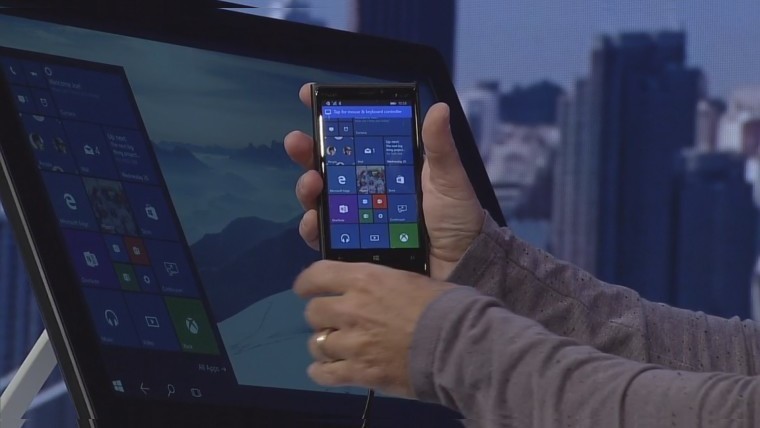
Phone Continuum in Windows 10 Mobile allows users to connect a mouse and keyboard, and then hook up their flagship-class phone to a monitor or TV, effectively turning the device into a mini-PC, complete with a desktop-style interface and Start menu. Almost every demo in which Microsoft has shown off this feature has focused on its usefulness with editing Office documents. However, as Neowin was first to report on Thursday, that functionality is only available to users on a ‘trial’ basis.
From April 1, 2016, you’ll need to pay for an Office 365 subscription to be able to edit Office documents in Continuum mode on your Windows 10 Mobile device, as Microsoft clarified that this functionality is only “available to try without Office 365 through March 31, 2016”. While this makes sense when you consider Microsoft’s Office licensing terms, some users expressed frustration that the company hasn’t been clearer on this point until now.
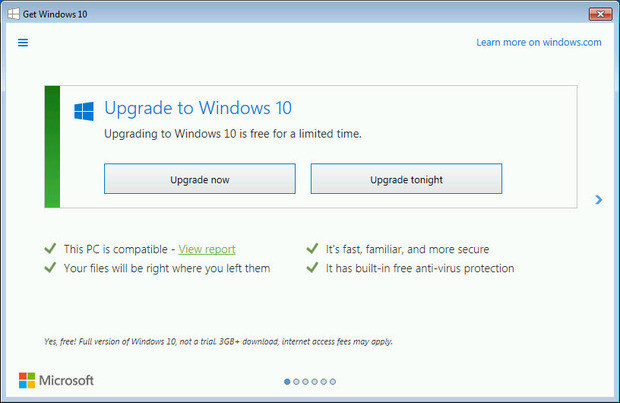
Microsoft has been trying to encourage Windows 7 and 8.1 users to upgrade to Windows 10 since its launch in July - but the company has recently been getting somewhat pushy in its approach.
This week, Microsoft updated its Get Windows 10 app, which is intended to make it easy for users of older Windows versions to upgrade to its newest release. However, the changes it made presented users with no obvious choice but to install Windows 10, giving them only two options – “upgrade now” or “upgrade tonight” – with no clear option to defer installation for any longer than that.

Meanwhile, those looking forward to upgrading their Windows Phone handsets to Windows 10 Mobile were disappointed on Thursday, as Microsoft revealed that it has delayed the release of the OS upgrade. It had previously said that upgrades for existing devices would begin in December, but now says that they won’t start rolling out until “early next year”.

On Tuesday, Microsoft withdrew its first general (i.e. non-preview) update to Windows 10 Mobile, following reports of installation problems for some users. It didn’t take long to return though – the following day, build 10586.29 began rolling out again to the first Windows 10 Mobile devices in the wild.

On Thursday, Microsoft also released Windows 10 Mobile Insider Preview build 10586.36 to both the Fast and Slow rings. Perhaps anticipating the horror of receiving endless tweets over the holiday season, each demanding to know if a new build is coming soon, Microsoft’s Gabe Aul also made it clear that there will be no more preview builds until the new year.

And by the way, Microsoft also released a new non-preview cumulative update for Windows 10 PCs on Thursday, bumping the build number up to 10586.36, matching that of the latest Mobile preview build.

On the same day, Gabe Aul acknowledged requests from many users for more regular releases of Windows 10 previews, and said that users should “prepare for Faster Fast ring builds” in 2016. However, he also sounded a note of caution, advising that more frequent builds are likely to include more bugs – and if you’re not prepared to deal with them, you should get out of the Fast lane and switch to the Slow ring instead.

On Friday, it emerged that Microsoft is apparently planning to restore ‘placeholder’ functionality in OneDrive, as part of its first Windows 10 ‘Redstone’ update next year. Placeholders were originally introduced in Windows 8.1, allowing users to view all of their cloud-stored files in one place, including those not stored locally on every device – but the feature was subsequently removed to avoid confusion among some users.

Microsoft released its first Windows 10 Insider Preview for PCs from the Redstone development branch this week. However, the new build 11082 doesn’t include OneDrive placeholders or the recently-rumored new Cortana functionality that’s also said to be on the way – but it does include the code needed to support new extensions in the Microsoft Edge browser.

Things haven't been going too well for Edge, which is installed as a key component of Windows 10 on over 110 million PCs around the world. Independent data show that the proportion of Windows 10 users running Edge has declined steeply in recent months, despite the total number of PCs running the OS continuing to increase.

Still, while many users shun Edge, they’re flocking to the Windows Store in the new OS in great numbers. Microsoft revealed this week that there have been over 2.5 billion visits to the Store since Windows 10 launched on July 29.
And there was more good news for Windows 10 users this week, as Microsoft’s Universal Windows Platform – which allows developers to create apps that can run across multiple device types with minimal changes – continues to gain support from major brands.

This week, The Wall Street Journal launched a new Universal app (PC/tablet and Mobile)…

…as did AccuWeather (PC/tablet only, for now)…

…and Netflix (PC/tablet only, but Mobile is coming soon).
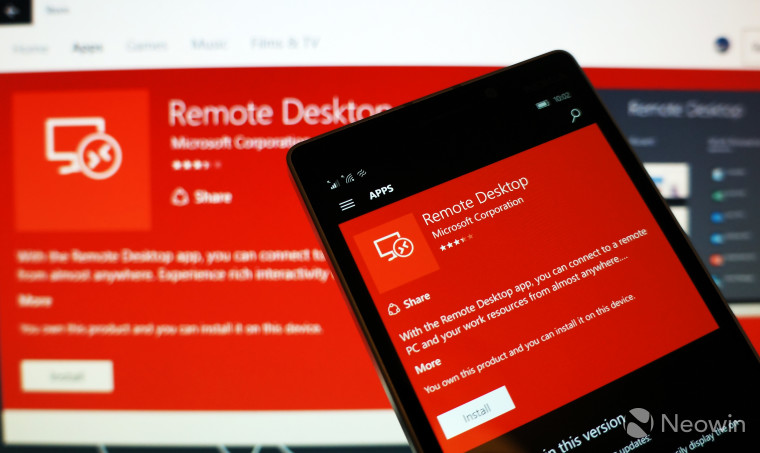
Microsoft also announced that it is working on a new Universal version of its Remote Desktop App, including support for Continuum mode on Windows 10 Mobile.
_story.jpg)
However, it’s not all been good news for the Windows Store lately. Comedy Central announced this week that its app is “leaving Windows”…

…and messaging and photo-sharing service Path also revealed that it’s ending Windows Phone support, and pulling its app from the Store on December 31, to focus its development efforts on iOS and Android instead. The app was originally announced with much fanfare as part of the Lumia 1020 launch in mid-2013.

Microsoft launched a new $19.99 Charging Stand for its Band 2 this week which, it says, “also doubles as a snazzy table clock”.
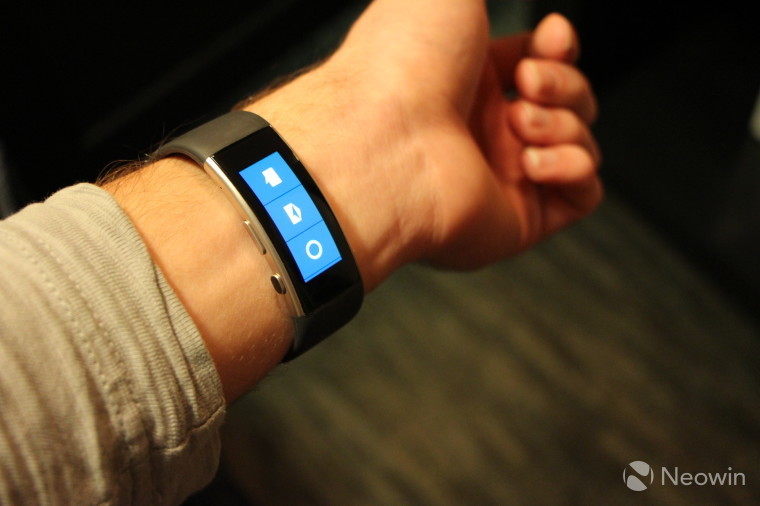
Amazon slashed $50 off the $249.99 price tag of the Band 2 (and the device is now also available for the same limited-time $199.99 price via the Microsoft Store).
Microsoft extended the savings to the UK as well, where the Band 2 is currently available for £169.99 – that’s £30 lower than its regular price.

Juniper Networks revealed on Friday that it had found “unauthorized code” in the ScreenOS software that runs on its NetScreen firewall devices. The company said that it’s not aware of any incidents of the code being exploited by attackers, but advised users to upgrade their software with its latest patch without delay.

Popular media streaming software provider Plex delivered some welcome news this week, when it announced that Xbox One, PlayStation 3 and PS4 users can now stream their content to those consoles without needing a subscription.

Hacking group and DDoS attackers ‘Phantom Squad’ revealed plans to target Xbox Live and PlayStation Network over the holiday period. Soon afterward, the Xbox Live network suffered an outage, for which the group claimed responsibility.

On Friday, a rival group, known as ‘SkidNP’, defaced Phantom Squad’s website, claiming that the latter “took credit for multiple attacks that you nor any of your members did” [sic].
A SkidNP member later told Neowin that his group “will be attacking Steam and Minecraft servers” over Christmas.
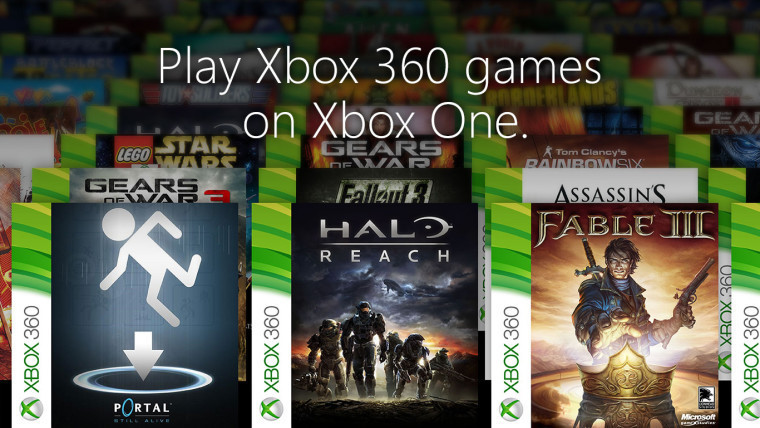
Microsoft announced 16 new additions to its catalog of backward compatible Xbox 360 games, which can be played on the Xbox One – just in time for the holiday season.
And for the third year in a row, Microsoft also announced its collaboration with NORAD to help keep track of Santa as he embarks upon his annual mission to deliver presents to all the children around the world who have been well-behaved over the last year.
Enter our latest GLOBAL GIVEAWAY!

In our latest Christmas Giveaway on Neowin, we’re offering you the chance to win a Microsoft Lumia 640 LTE, along with a ma-HOO-sive 128GB SanDisk Ultra Class 10 microSDXC card!
There are plenty of ways to enter, and the contest is open to our readers around the world. Good luck!

Thank you
As we approach the end of the year, I’d just like to say a huge thank you to all of our readers, members and subscribers all over the world for joining us here on Neowin throughout 2015. Without your support, of course, we wouldn’t be here, and I hope we can continue to welcome you back in the weeks, months and years ahead.
Whatever your plans over the festive season, I hope that you have an amazing time surrounded by family and friends! From all of us on the Neowin team, have a great weekend, and a very happy new year!
-- Andy
7 Days will be taking a short break, but will return in 2016.



















9 Comments - Add comment